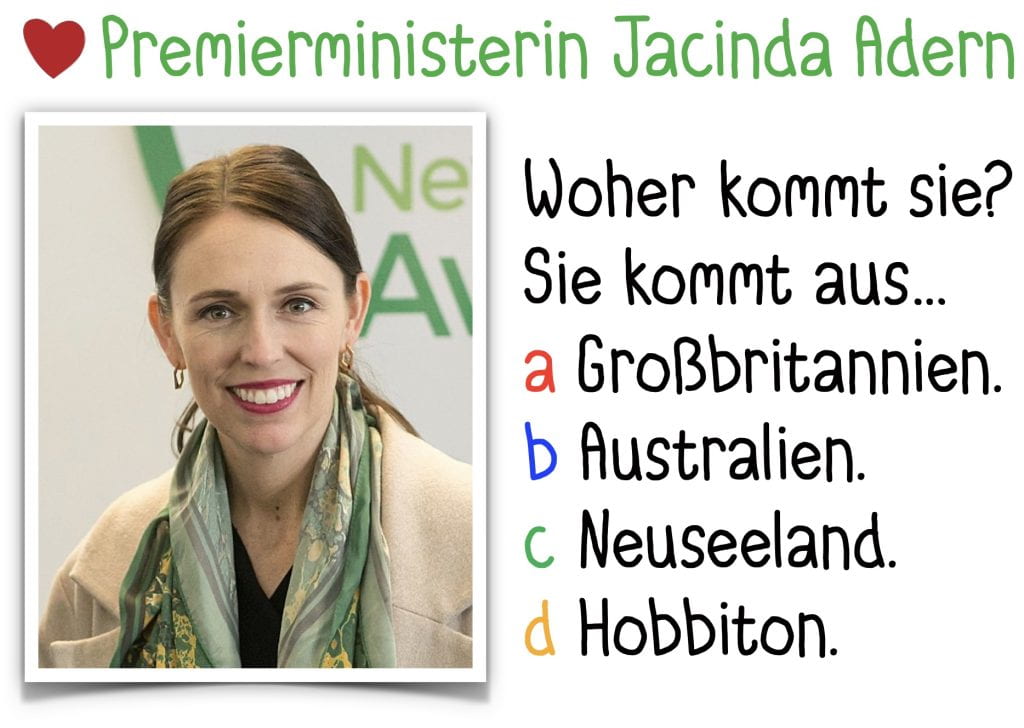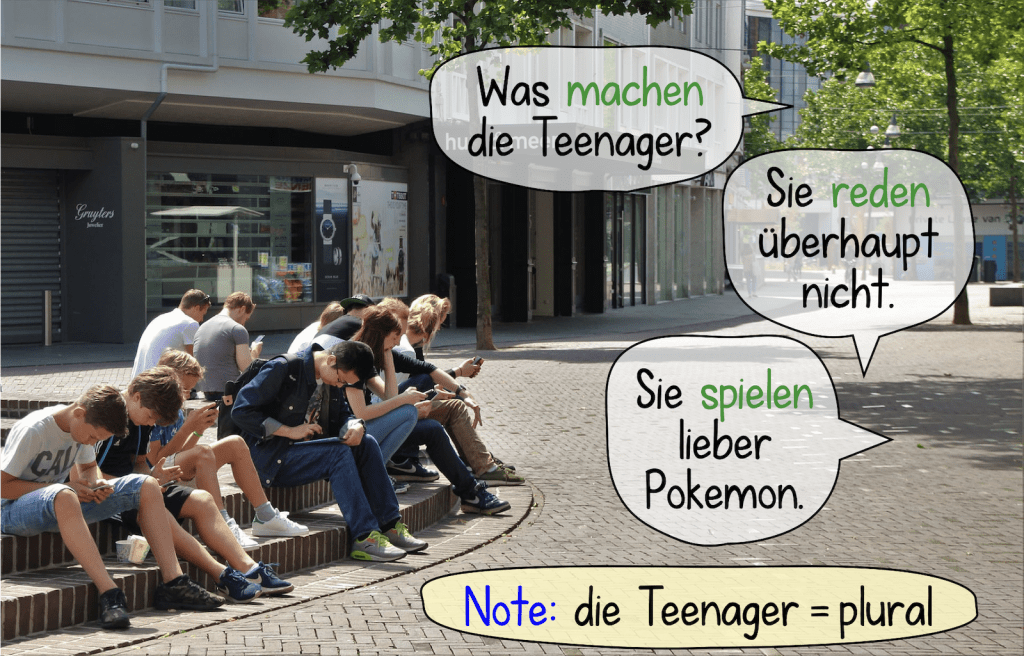Published by Roslyn Green in November 2022
Here are thirty freshly updated Kahoots to accompany teachers and learners through the last exhausting months of this year. These games could be just the thing to get you through a torturous afternoon period in a long and wearing week. Students can also play them in little groups with one student hosting.
I’ve listed the Kahoots roughly in order from the simplest to the most difficult, with links to related pages that also offer individual quizzes for early finishers.
Please note: You may have to click through Kahoot’s marketing prompts initially. But hopefully you will get to a point where you can “continue as guest” or log in if you have an account.

Beginners answer simple questions about greetings, noun gender, numbers and self-introduction. Suitable after 4-6 lessons of German.
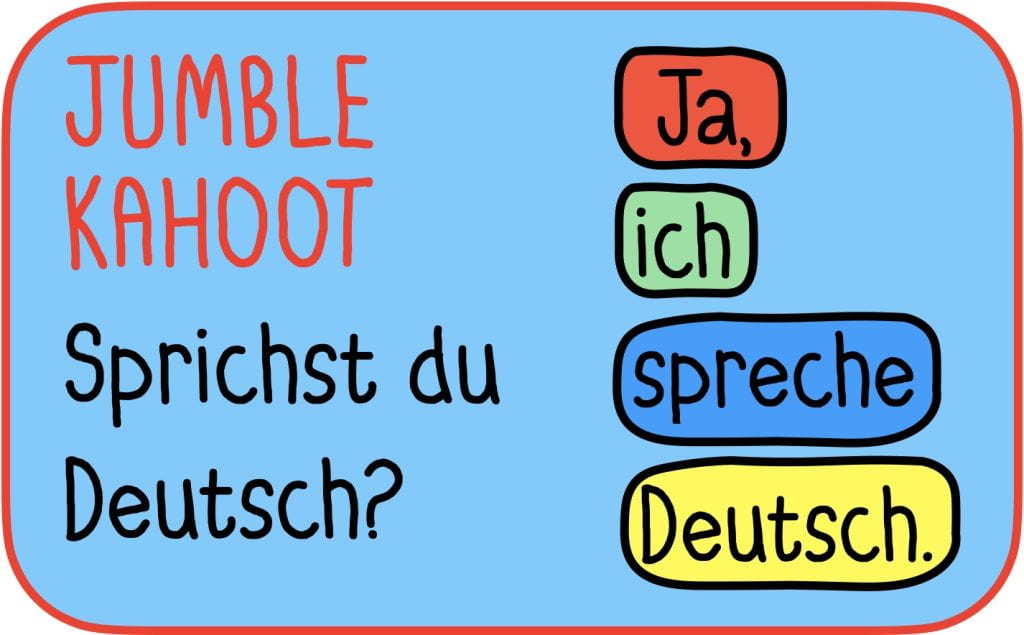
Jumble Kahoot: Ich lerne Deutsch 
Learners respond to each question by placing four words (or sets of words) in the right order. This could be played with a class or by a small group of students.
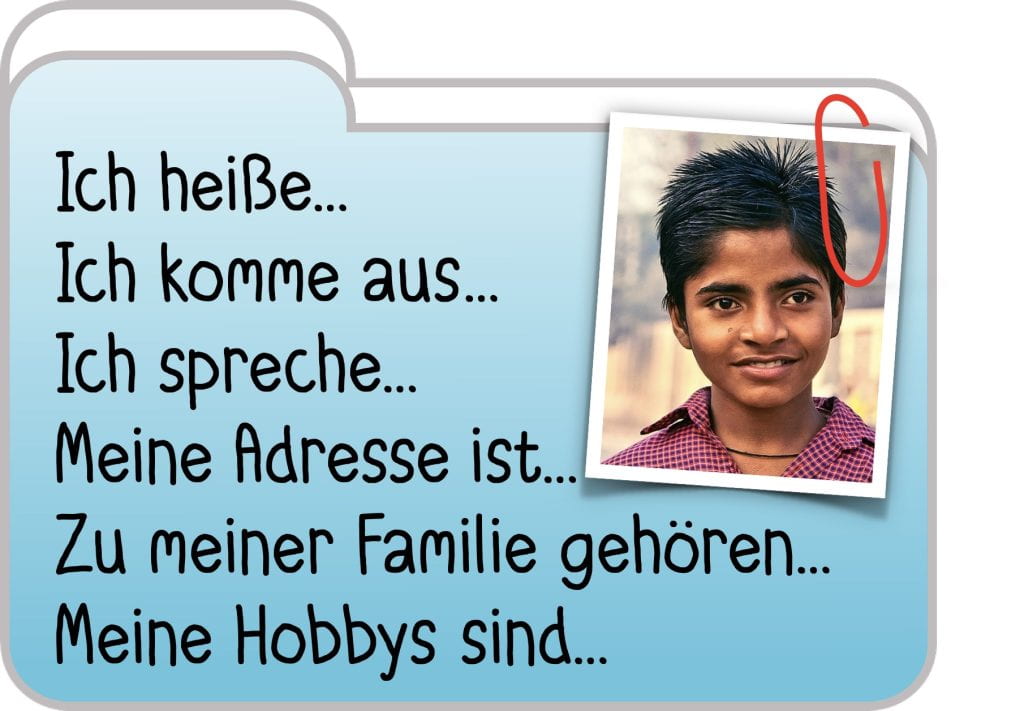
This is a simple introductory game for students who are in the first 2-3 months of learning German. Players need to choose the correctly written sentence in each question.
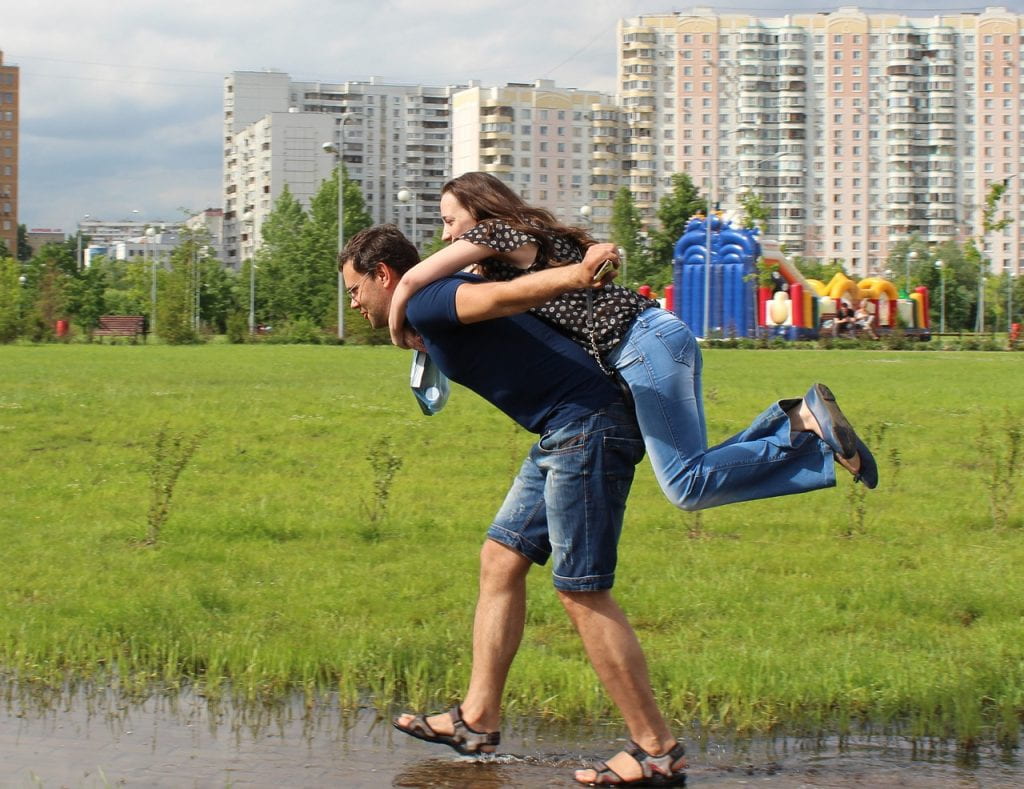
Freunde, Freundinnen, Freundschaft 
In this simple Kahoot, useful words for friends, friendship and the characteristics of friends are introduced.

Doktor Tierlieb: Ein Doktor für Tiere 
Learners can revise animal names in singular and plural forms, definite and indefinite articles, and adjectives.

Players experience a simple school day in German, from breakfast before school to feeling tired afterwards.
Note: Both of the above units provide downloadable booklets for students.

This game revises the names of school items; ein/e and kein/e; and the uses of common school objects.
Note: Both of the above units provide downloadable booklets for students.
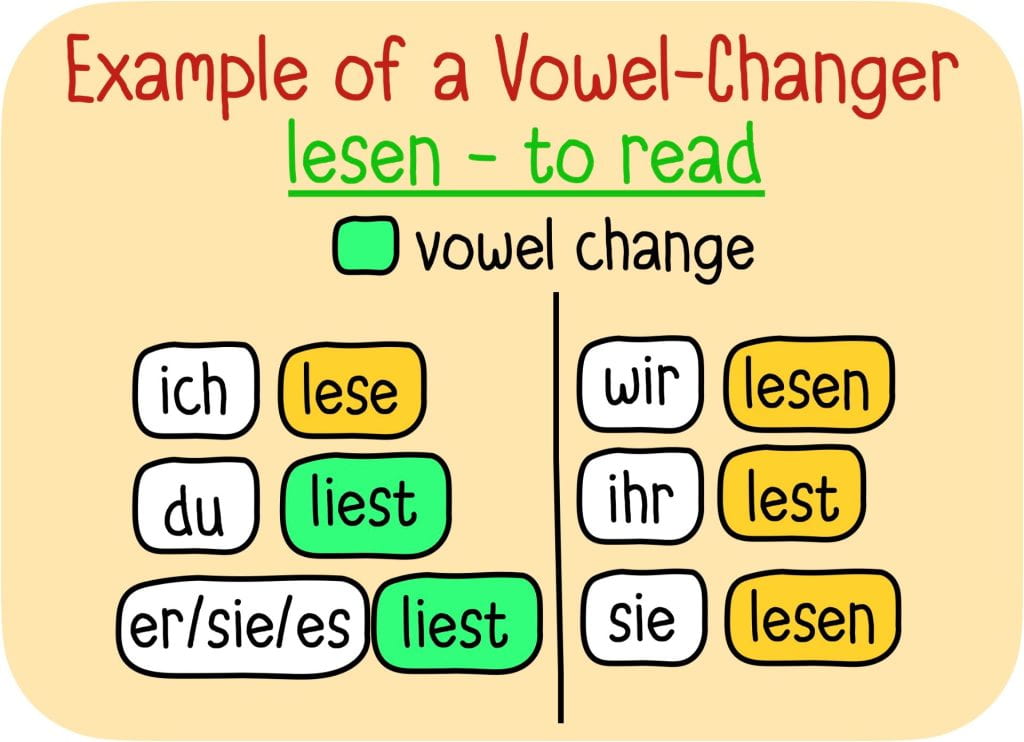
Learners revisit the conjugation of important verbs, including sein, haben and some common vowel-changers.
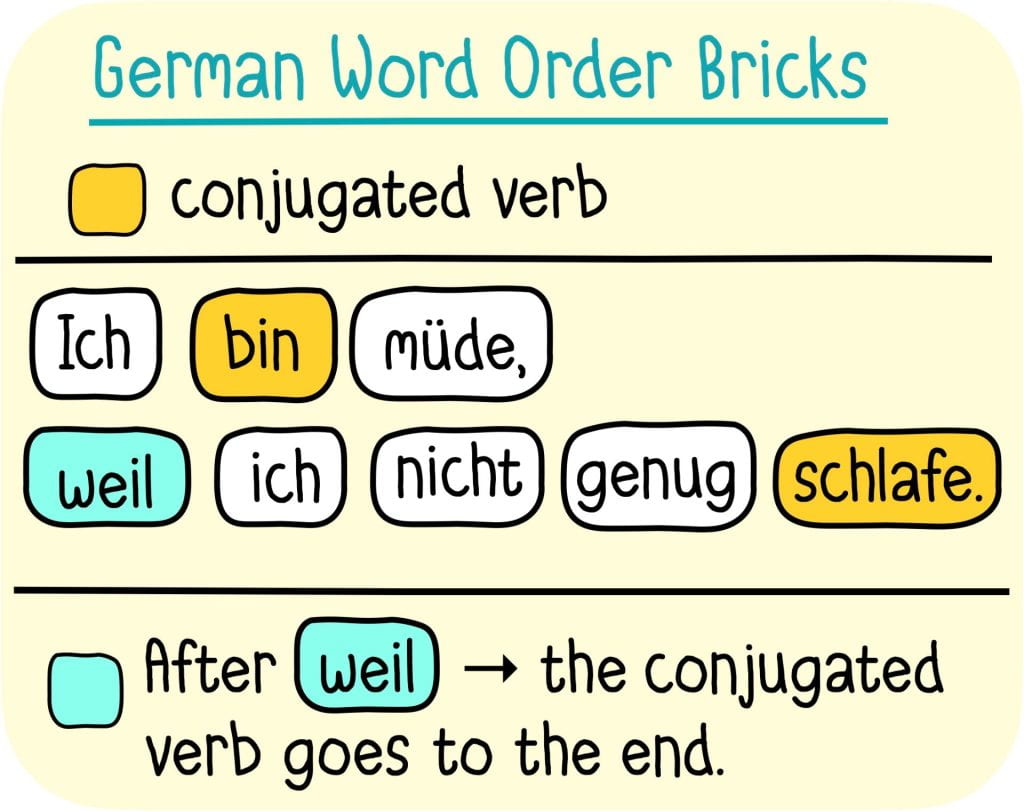
German Word Order with weil and denn 
This is a jumble puzzle in which students need to place words in the correct order to form or complete a sentence. Each question allows a minute to work out the puzzle.
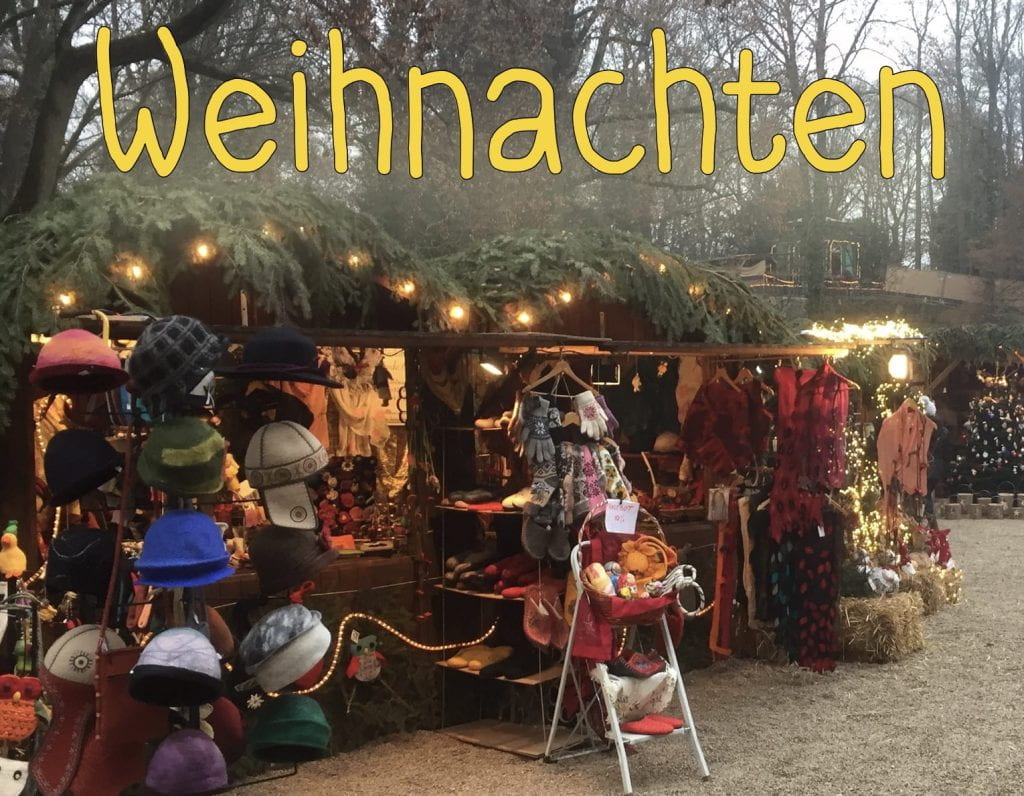
This quiz offers 20 questions in which simple vocabulary is introduced and then reiterated in the following question. Ideal after a year or two of German.

Allgemeinwissen | General Knowledge in German 
This quiz is purely in German. A new word is introduced with the help of a simple sentence and picture, then reinforced in one or two of the following questions. The students therefore learn new German words by applying their existing general knowledge.
This is actually my most popular German Kahoot – it has been played more than any other. Who would have thought?
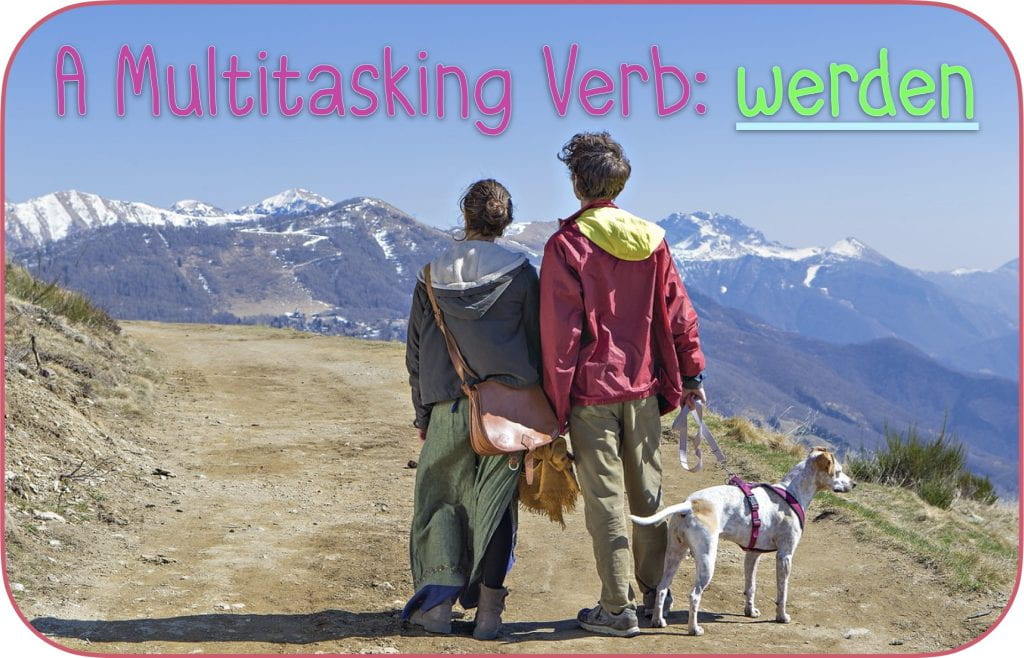
Practise using and conjugating werden in two of its roles: as a verb meaning to become, to get, to turn; and as an auxiliary verb to create the future tense.

Players have to distinguish between the nominative and accusative cases and then choose the correct adjective endings in simple sentences.

Comparisons: Mein Hund ist größer als dein Hund! 
Learners can practise making comparisons, including with irregular comparatives such as größer, wärmer, älter, jünger, länger, etc.

This Kahoot focuses purely on the correct conjugation of the auxiliary verb: sein or haben. There are several simple sentences with a variety of activities represented.
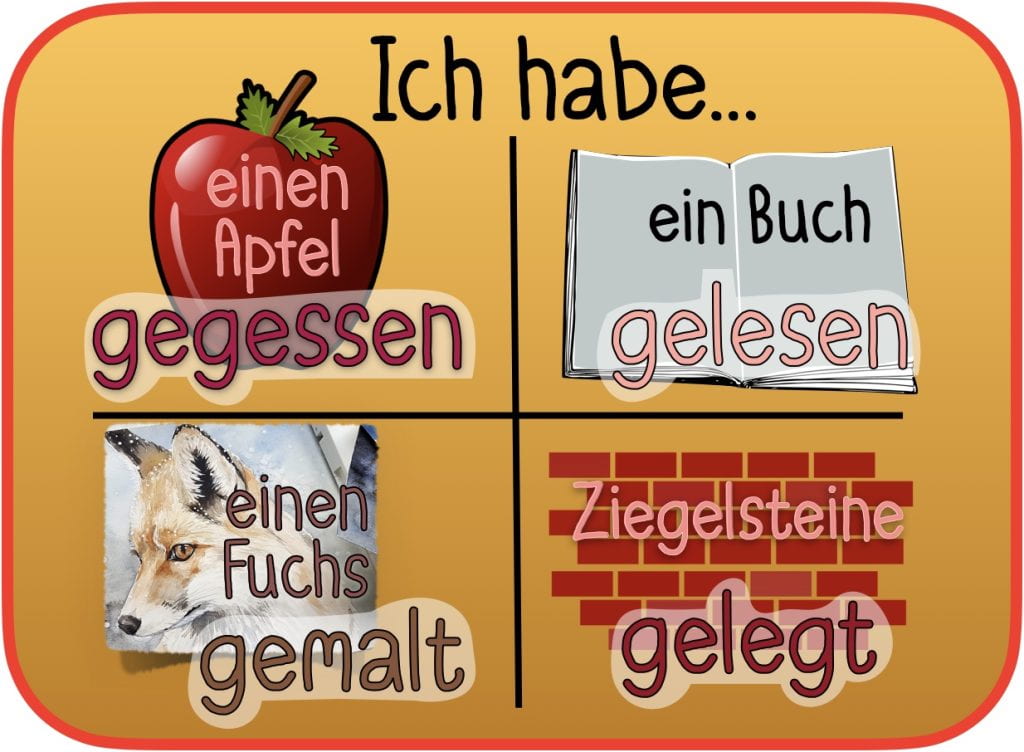
Which Past Participle? – The German Perfect Tense 
The key task for learners is to choose the correct past participle from four options. There are several simple sentences with a variety of activities represented.
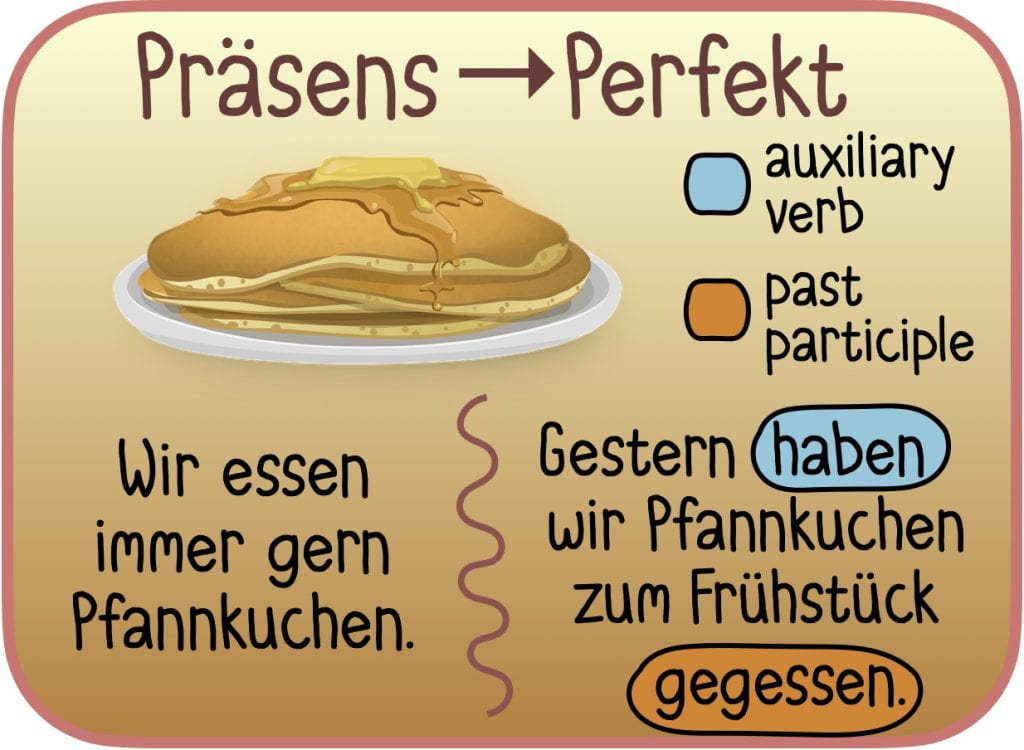
The Long Weekend in the Present and the Perfect Tenses 
Each question has a sentence in the present tense, followed by an equivalent sentence in the perfect tense. Players have to choose the correct auxiliary verb and past participle to complete the perfect tense sentence.

Players choose between sentences that describe school holiday activities. They also revise W-question words, which should then allow them to pose questions about the holidays themselves.

Learners revise vocabulary related to giving a party, inviting people to come, preparing for the event, and so on.
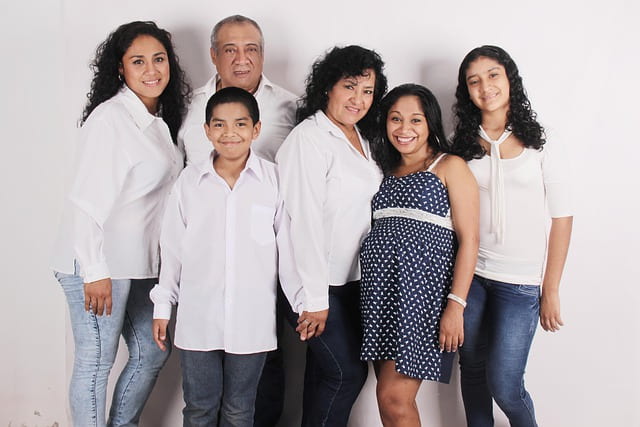
This Kahoot introduces key verbs for love, marriage and marriage breakdown, as well as exploring the complexity of family relationships in a very simple fashion.
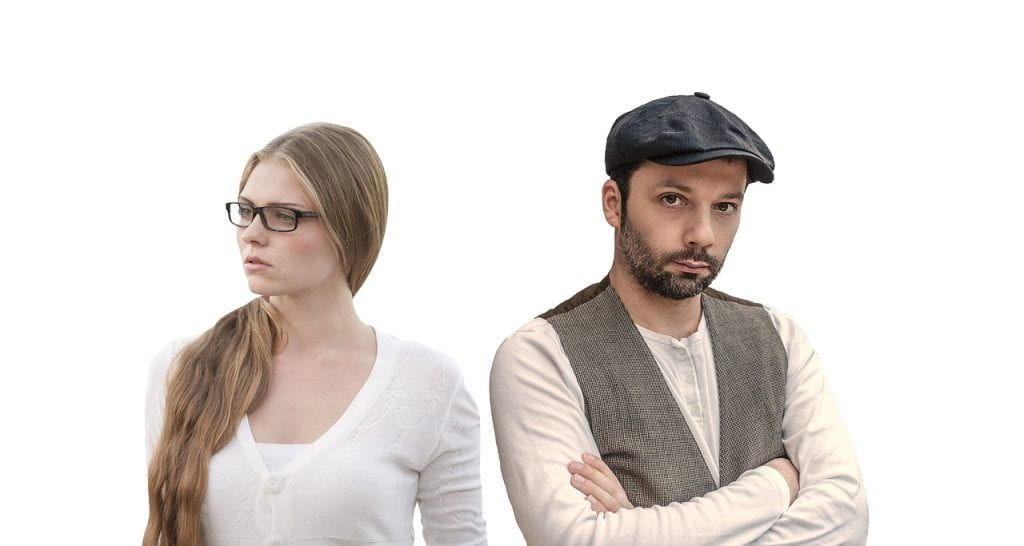
Manchmal verstehen wir uns gut, manchmal nicht 
This Kahoot reinforces vocabulary for describing how people get along — or don’t. Some questions require the use of weil to give reasons for feelings; others revise the reflexive pronouns.

Reflexive and Reciprocal Verbs in German – Accusative Reflexive Pronouns 
Learners practise the usage of verbs such as sich anziehen, sich verstehen, sich beeilen, etc. This Kahoot provides good practice for the accusative reflexive pronouns and common verbs that require them.
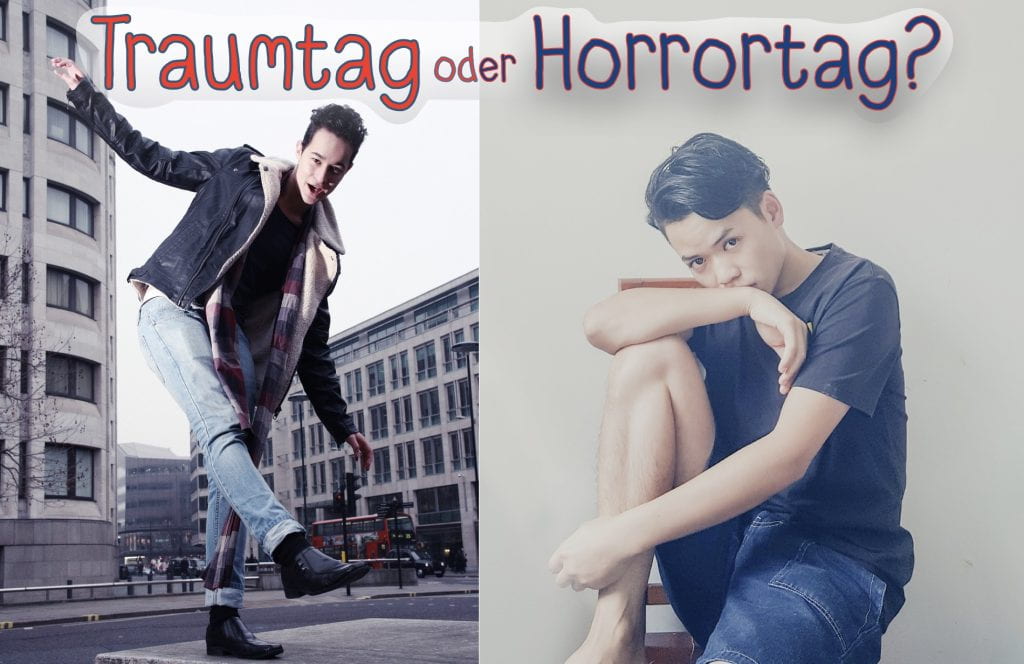
In each question a typical teenager experience is described. The students have to decide what kind of day is represented. Later questions present players with 4 situations; they have to choose which belongs to a happy day or an awful one.

Players are asked to choose between options that are friendly to the environment and actions that might lead to harm. The vocabulary is summarised in the two pages buttoned below.
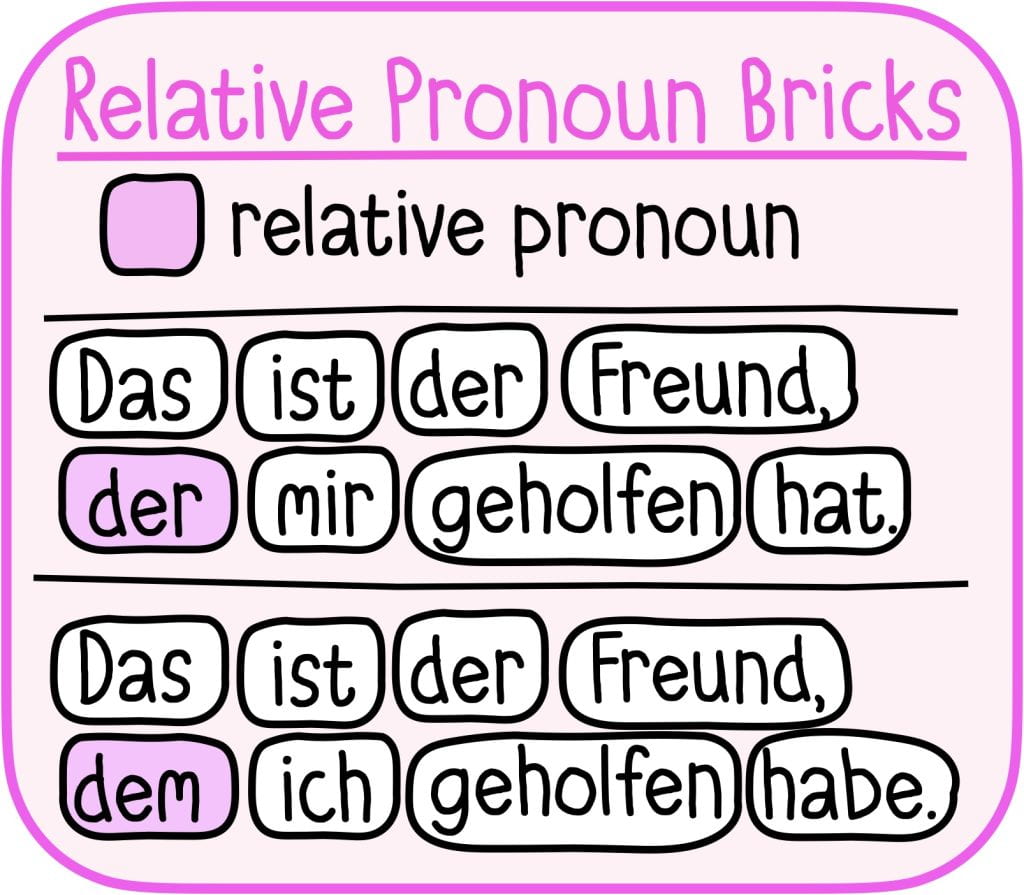
This is a relatively challenging quiz for senior or more advanced students. Students need to choose between relative pronouns and distinguish between nominative, accusative and dative cases.
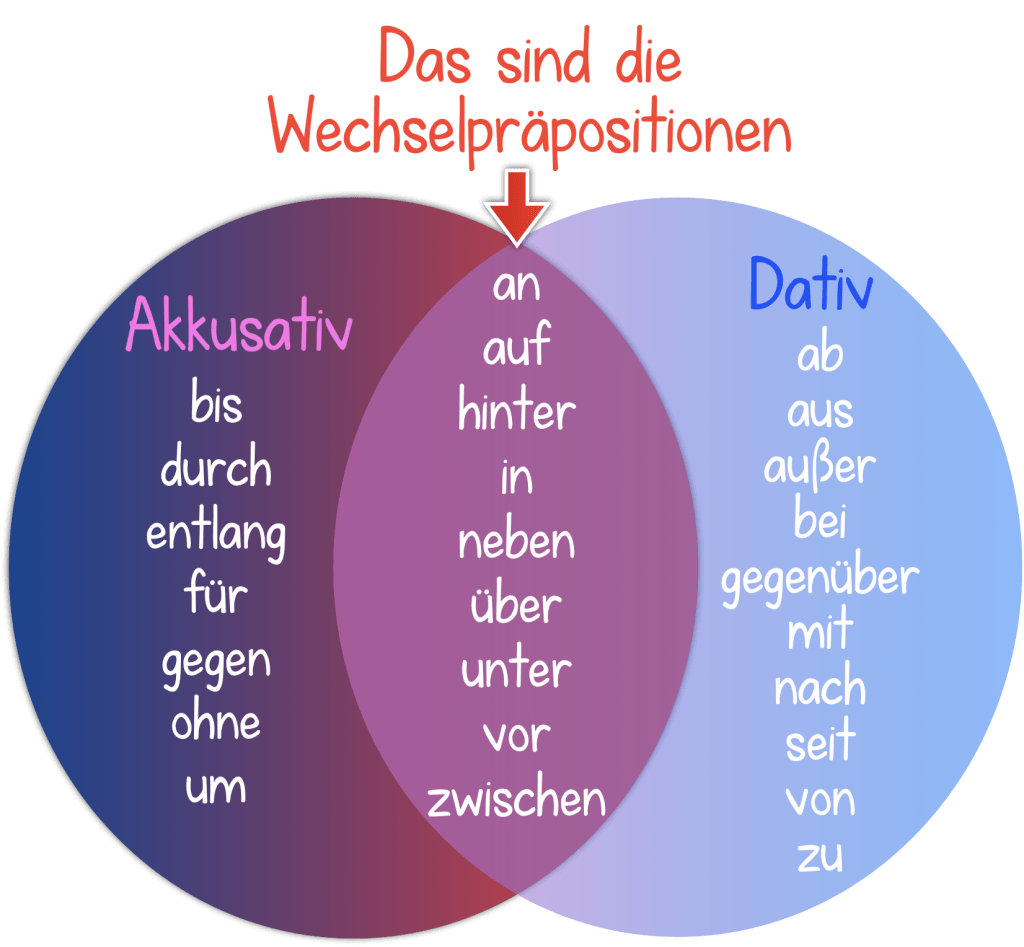
This is a relatively challenging quiz for senior or more advanced students. I made it originally for students learning German at the Goethe-Institut in München, so it is completely in German and includes some photos from that visit.
